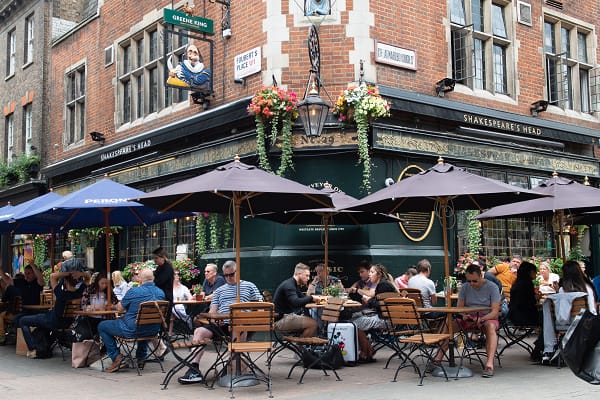When it comes to marketing your hospitality business, the vast range of potential strategies can be bewildering. Every year, there are new tactics, methods and models that promise dazzling results and a quick return on ROI.
There’s certainly a place for innovation in the hospitality industry, but there are also some benefits from reviewing what methods have been successful in the past. This kind of retrospective assessment can yield valuable clues about the principles and practices that can stand the test of time.
If you’re looking for some classic, proven, time-tested alternatives to the latest buzz-friendly tactics, here are three hospitality marketing success strategies that have stood the test of time.
Paid advertising
Ever since the dawn of the internet and the rise of organic traffic, there have been questions about using Paid Advertising when so many other free channels are available. Yet, there’s undoubtedly still a place for paid ads, with many hospitality marketing experts continuing to recommend this proven strategy for the simple reason that it continues to work.
Not only is there still a role for paid advertising in the hospitality industry, when it’s done well it can be one of the most effective and reliable ways to reach your potential customers. Well-crafted ads. combined with the right placement, are a surefire way to raise awareness about your business.
One of the key lessons learned from the many business owners who have dabbled with paid advertising is that, while it can be a powerful success strategy, it can also be an expensive option, especially for those who are new to the proven practices. This is perhaps why so many hotels and restaurants hire in the experts to ensure they get the best ROI for their advertising spend.
Word of mouth
Perhaps the ultimate proven marketing strategy, word-of-mouth referrals and recommendations are a classic way to reach more customers and spread the word about your business. Many experts claim that this kind of marketing is the best way to encourage new customers to try out your venue. After all, a direct recommendation from friends, family, peers, or celebrities can carry far more weight than any other kind of marketing, whether paid or organic.
While it’s notoriously challenging to manufacture this kind of lucrative buzz, there are some strategies that pave the way for more happy customers talking about your business. Of course, the best way to spark these powerful conversations is to deliver outstanding service – happy customers love to tell their friends!
There are other marketing tactics that can also encourage your patrons to spread the word. Initiatives such as loyalty schemes, referral rewards and competitions can all help to inspire your customers to share their experiences. With the rise of social media, these kinds of word-of-mouth mentions can be a priceless boost to your marketing efforts
SEO
Search Engine Optimisation may be the OG of online marketing, but it’s still going strong. Even with the rise of AI, those who can master SEO can enjoy great returns on their efforts in terms of streams of traffic to their business website.
This particular proven strategy is especially effective in the hospitality industry. If you consider the types of things people look for most online, places to eat, drink and stay will always be among the top searches. The strategy of ranking for searches ‘near me’ is also highly effective for brick-and-mortar businesses that want to reach local customers.
SEO may not be quite as glamorous or creative as the popular social media channels or the latest fad tactic, but it’s a classic marketing strategy that has outlasted many trends over the last couple of decades. There’s still a requirement to be flexible and to adapt to the neverending changes in the online world. Yet, this is one of the original online reach mechanisms that’s still effective today.
While each of these marketing strategies has stood the test of time, they each have their advantages and disadvantages. All of them may be a highly effective method for you to reach your customers, yet it’s up to each business owner to decide which will be the most beneficial to the unique demands and limitations of your establishment.
The good news is that all of these strategies have been proven over time making it possible to review their effectiveness over the longer term. So you can assess which aspects of these classic principles are still relevant today, as well as being appropriate for your pub, restaurant or hotel.








